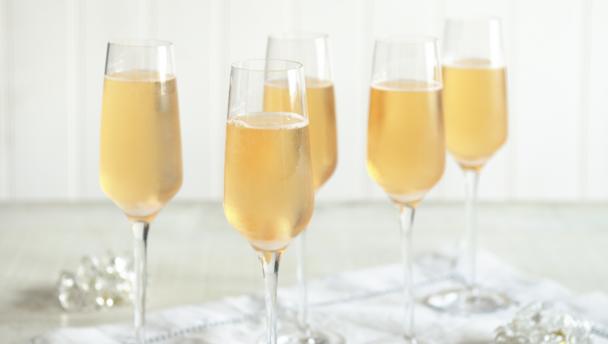

It is generally agreed that, at the luxury end of the market, the finest champagnes are the best bubblies around. They show remarkable elegance and freshness and have a fine, crisp mousse, combined with a rich biscuity, yeasty flavour. The best vintage champagnes (made only from grapes grown in one, particularly good year) will age wonderfully over many years, and become more mellow and rich with time.
 Champagne jelly
Champagne jelly
 Lemon and mascarpone tart
Lemon and mascarpone tart
 Deconstructed cream tea
Deconstructed cream tea
 Prosperity
Prosperity
 Bellini cocktail
Bellini cocktail
 Classic champagne cocktail
Classic champagne cocktail
In general, the higher the price you pay for your champagne, the better it will taste. Although there are some good value mid-priced champagnes around, the very cheapest champagnes can be poor value - you may end up paying for the name 'Champagne' but getting a mouthful of wine that tastes rough and sharp.
Sparkling wines from New World wine-producing countries are a good substitute for Champagne. They're vivacious with big bubbles, tropical fruit flavours and a creamy finish and are a good choice if you want something better-than-average but would rather not spend a fortune on premium champagne. Alternatively, cava is produced in the same meticulous way as champagne, and is just as reliable (although the local Spanish grapes tend to give a much more simple, neutral style of wine).
Store in a cool cellar or the fridge.
Serve well chilled.
Article by Susy Atkins
Type the ingredients you want to use, then click Go. For better results you can use quotation marks around phrases (e.g. "chicken breast"). Alternatively you can search by chef, programme, cuisine, diet, or dish (e.g. Lasagne).